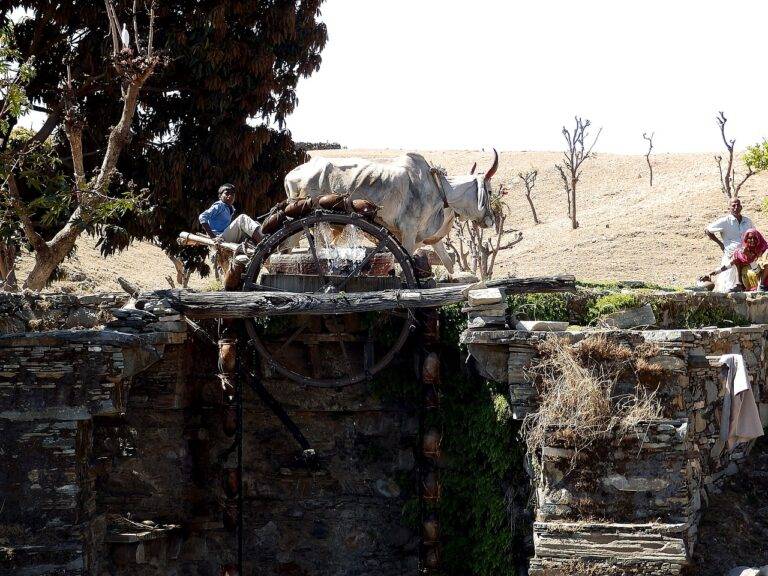How to Use Webinars for PAC Engagement: Laser book 247.com, Silver exchange login password, 11xplay pro login
laser book 247.com, silver exchange login password, 11xplay pro login: The Impact of PACs on Rural Policy
Political Action Committees, commonly known as PACs, have long been influential players in shaping policy decisions in the United States. However, their impact on rural policy, in particular, is often overlooked. In this article, we will explore the role of PACs in shaping rural policy and the implications it has for rural communities across the country.
Understanding PACs
Before diving into the impact of PACs on rural policy, it is essential to understand what PACs are and how they operate. PACs are organizations that raise money to support or oppose political candidates, parties, or legislation. They can be formed by corporations, labor unions, issue-based groups, or individuals.
PACs channel funds from donors to political campaigns, allowing them to influence elections and policy decisions. While PACs are regulated by campaign finance laws, they play a significant role in shaping the political landscape in the United States.
The Influence of PACs on Rural Policy
In recent years, PACs have increasingly focused their efforts on shaping rural policy, as rural issues have gained more prominence in national politics. PACs representing various industries, such as agriculture, energy, and healthcare, have been actively lobbying for policies that benefit their interests in rural communities.
For example, agriculture PACs have pushed for policies that support farmers, such as subsidies and trade agreements. Energy PACs have advocated for policies that promote the development of energy resources in rural areas. Healthcare PACs have lobbied for policies that improve access to healthcare services in rural communities.
The influence of PACs on rural policy is significant because rural communities often rely on industries like agriculture, energy, and healthcare for their economic well-being. By shaping policy decisions in these areas, PACs can have a direct impact on the livelihoods of rural residents.
Challenges of PAC Influence on Rural Policy
While PACs can bring resources and expertise to the table when advocating for rural policy, their influence also raises concerns. One of the primary challenges is that PACs often prioritize the interests of their donors over those of the general public. This means that policies shaped by PACs may not always align with the needs of rural communities.
Additionally, the influence of PACs on rural policy can lead to an unequal distribution of resources, with well-funded interests dominating the policy-making process. This can disadvantage smaller organizations and citizen groups that may not have the financial resources to compete with PACs.
Furthermore, the revolving door between PACs and government positions can create conflicts of interest and undermine the integrity of the policymaking process. When policymakers have close ties to PACs, it can raise questions about whose interests are being represented in the decision-making process.
Navigating the Influence of PACs on Rural Policy
Despite these challenges, there are ways to navigate the influence of PACs on rural policy to ensure that the needs of rural communities are adequately represented. One approach is to promote transparency and accountability in the policymaking process. By requiring PACs to disclose their donors and lobbying activities, policymakers can ensure that decisions are made based on the public interest rather than special interests.
Another strategy is to increase grassroots participation in the policymaking process. By empowering rural residents to voice their concerns and advocate for their interests, policymakers can counterbalance the influence of well-funded PACs.
Additionally, policymakers can seek out diverse perspectives and expertise when crafting rural policy. By consulting a wide range of stakeholders, including community organizations, nonprofits, and advocacy groups, policymakers can ensure that policies reflect the needs and priorities of rural communities.
FAQs
Q: Are PACs legal?
A: Yes, PACs are legal entities that are regulated by campaign finance laws in the United States.
Q: How do PACs influence rural policy?
A: PACs influence rural policy by raising funds to support political candidates who align with their interests, lobbying policymakers to advocate for specific policies, and shaping public opinion through advertising and outreach campaigns.
Q: Can individuals donate to PACs?
A: Yes, individuals can donate to PACs, but there are limits on how much they can contribute to a PAC.
Q: How can rural residents advocate for their interests in the face of PAC influence?
A: Rural residents can advocate for their interests by getting involved in grassroots organizations, attending town hall meetings, contacting policymakers, and participating in local elections.
In conclusion, the influence of PACs on rural policy is a complex and often controversial issue. By understanding the role of PACs in shaping rural policy, we can work towards ensuring that the needs of rural communities are adequately represented in the policymaking process. Through transparency, grassroots participation, and collaboration with diverse stakeholders, policymakers can navigate the influence of PACs to create policies that benefit all rural residents.







